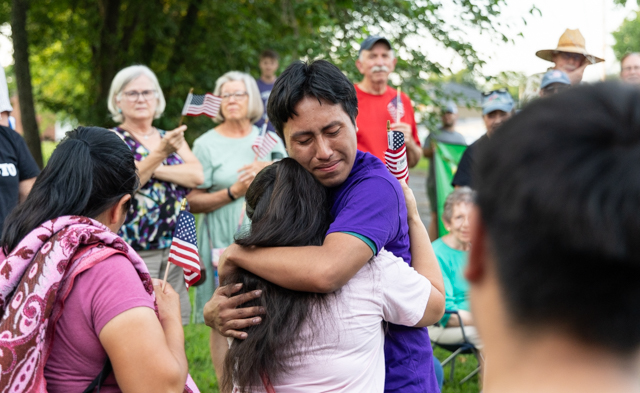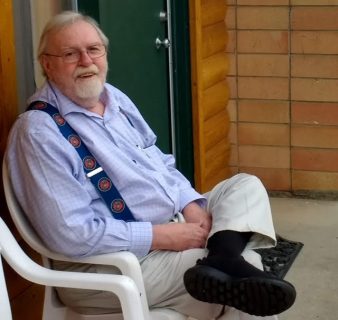Residents concerned about fate of pledge
Published 12:00 am Sunday, June 30, 2002
After a federal appeals court panel in California ruled last week that reciting the Pledge of Allegiance in public schools is an unconstitutional endorsement of religion, the ruling was debated across the country. Bowling Green residents were no exception. If the ruling is allowed to stand, it would only apply to nine states covered by the 9th Circuit Court, but some local people including students, religious people and veterans are worried that their right to say under God during the pledge may be taken away next. Lindsey Cook, a Christian and an eighth-grader at Bowling Green Junior High School, said she and her friends discussed the ruling last week. She says they believe the Pledge of Allegiance is more important to them now than ever. After Sept. 11, this is all weve got left, she said. This is showing our freedom. This is whats helping us get through. Cook said that after the Ten Commandments were taken down in many schools, she and some of her friends put smaller versions up in their lockers. And they would continue to say the pledge even if it was unconstitutional, she said. At Bowling Green Junior High, the Pledge of Allegiance is still recited every morning, Cook said. She wonders what it would be like if that werent the case. All of the younger kids and generation below us wont ever know what we stood for, she said. The case against the use of under God in the pledge was brought by a father, Michael Newdow, an atheist, whose daughter attends a public school. I dont have anything against the Pledge of Allegiance, he said Thursday morning on ABCs Good Morning America. Im against the pledge that has the religious dogma that I disagree with. I have nothing against patriotism. The Pledge of Allegiance was written by socialist Francis Bellamy in 1892. The original version didnt include God or the United States. I pledge allegiance to my flag and the republic for which it stands, one nation indivisible, with liberty and justice for all, was how Bellamys version read. The recitation of the pledge had become a ritual in public schools by 1920. But God didnt become a part of the pledge until the Red Scare. In 1954, in an attempt to set Americans apart from the communist Soviet Union the words under God were inserted in the pledge. Now, almost 50 years later, Newdows case could return the pledge to a version that sounds more like the original. Jeff Vessels, executive director of the Kentucky branch of the American Civil Liberties Union, declined to comment on the case. A national ACLU statement said the group was not involved in Newdows case, but they do support him. Schools can and should teach tolerance and good citizenship, but must not favor one religion over another or belief over non-belief, the statement says. Local parent Masuda Rahim said she always encouraged her son, Sayeed, to say the Pledge of Allegiance while he was a student at Greenwood High School. He graduated in 1999.Masuda Rahim, a Muslim, is upset by the ruling to remove God from the pledge. If you take God out of everything, God is everywhere anyway, she said. You cannot take him out. At the local American Legion, meetings start with a salute to the flag, the Pledge of Allegiance and a prayer. Commander of the American Legion Post 23, Roger Miller, said this has been the routine for years. Hes offended that a court would rule the pledge to be unconstitutional. Its a bunch of bologna, Miller said. When a judge gets up and says its unconstitutional, its sad. Its a sad day. Zacchaeus Compson, a graduate student at Western Kentucky University, said he is worried about the countrys future if courts take God out of everything associated with America. Im concerned about us losing our culture and our heritage since we do have culture rooted in a religious tradition, he said. Where is the line where we are exposing people in an unjust way and where is the line where we are eliminating our tradition? he asked. And, of course, I dont have an answer for that.






